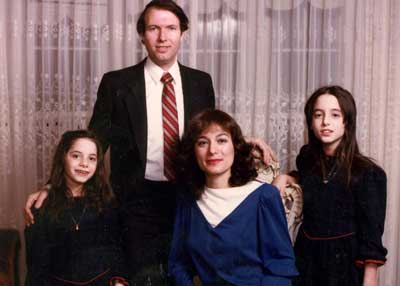Less than a month after he acquitted them of one of the most scandalous murder conspiracies in New York history, a federal judge denied bail yesterday to the two retired detectives in the so-called Mafia Cops case on a much less solemn charge: a plot to distribute less than one ounce of methamphetamine.
The drug charge was one of only two counts left from the original indictment of the men, Louis J. Eppolito and Stephen Caracappa, who were found guilty on April 6 of taking part in at least eight murders for the Luchese crime family. On June 30, the verdict was reversed when the judge in the case, Jack B. Weinstein, ruled that the statute of limitations — five years for conspiracy charges — had run out.
Yesterday, after he denied the two men bail in Federal District Court in Brooklyn, Judge Weinstein took them to task, as he did in his order of acquittal, calling them “dangerous criminals with no degree of credibility” and saying they had been “publicly shamed” at the very trial he had upended by tossing their convictions out. He said the drug charge — an alleged deal hatched over dinner in Las Vegas — was a “serious” charge and sternly ordered the federal marshals to haul the men back to jail.
Mr. Eppolito and Mr. Caracappa now inhabit a strange piece of legal real estate, one that might be labeled “guilty but acquitted.” Both judge and jury in the case have found that there was ample — even overwhelming — evidence that the former lawmen committed some of the worst crimes of corruption since 1912, when a police lieutenant, Charles Becker, was charged with (and later executed for) the murder of a two-bit gambler named Herman “Beansie” Rosenthal. Despite such evidence, however, the murder charges against Mr. Eppolito and Mr. Caracappa were effectively dismissed.
Although the government has said it will appeal Judge Weinstein’s order of acquittal, the judge himself said yesterday that his decision to deny bail had nothing to do with the appellate case and was based solely on the fact that the two men still have charges pending against them: the drug count (for both) and a count of money-laundering (for Mr. Eppolito alone). The government has said it will try the two men on the drug charge in Federal District Court in Brooklyn, though only after the broader appeal has been decided in a proceeding that could take months.
In the meantime, Mr. Eppolito and Mr. Caracappa will return to the Metropolitan Detention Center in Sunset Park, Brooklyn, where they have been sharing a cell since their April convictions. Daniel Nobel, Mr. Caracappa’s lawyer, asked Judge Weinstein if his client might be moved to a different jail, later saying: “I dare say most marriages would founder under similar circumstances.”
There were many reasons Judge Weinstein could have granted bail, as he had done before the trial began. At that point, the two men faced a damaging array of charges, now dismissed. Moreover, at the first bail hearing, last July, the government itself had said that there was no “presumption” that the two detectives should be held on the methamphetamine charge.
Mr. Nobel and Joseph Bondy, Mr. Eppolito’s lawyer, said they were likely to appeal the judge’s ruling on denying bail to a higher court. Mr. Bondy, in particular, said he thought Judge Weinstein may have kept the men in jail as a way to offset their acquittals on what some saw as a technicality in the case.
“I think there may have been a balancing aspect to the judge’s decision,” he said. “Perhaps from the judge’s point of view letting them go may have been inconsistent with his role pending a retrial.”
One of the arguments the prosecution raised against bail yesterday was a concern that if the men were freed, they might be tempted to threaten witnesses in the case. After all, having sat through an entire trial, they now know each witness by name.
In court papers filed last week, the prosecution mentioned one witness in particular, Steven Corso, a disgraced accountant, who testified at trial that in February 2005, Mr. Eppolito and Mr. Caracappa agreed to help him find some methamphetamine for some “Hollywood punks” who were coming to Las Vegas.
“With their liberty at stake, the defendants have a tremendous incentive to attempt to harm Corso to prevent him from testifying against them,” the prosecution contends in court papers.
Nonetheless, Mr. Corso himself sounded only marginally worried when he called The New York Times last month to discuss the outcome of the trial.
Although he said there were times that “he was looking out for bullets,” his main concern seemed to be the paper’s coverage — of himself..

